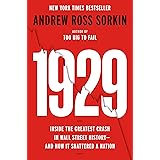“Unlocking the Hidden Rewards: Why the Grueling Journey of Writing a Novel Is Truly Worth Every Word”
Have you ever found yourself lost in a whirlwind of creativity, only to be yanked back to reality by the relentless demands of the daily grind? I can relate. In a world where the line between artistry and automation is increasingly blurred, the challenge of maintaining authenticity in our work feels like an uphill battle. But what if I told you that the very act of “doing”—in both life and writing—holds the key to unlocking our fullest potential? In this reflective piece, we dive into the mundane tasks that often occupy our time, and how finding a balance between them and our passions can lead to unexpected insights and efficiency. It’s about embracing the process, regardless of how unglamorous it may seem. Intrigued? Well, you’re about to discover how the little things can lead to big transformations. LEARN MORE

Doing the thing is the point of the thing
Some days are more creative than others.
What I do isn’t glamorous. It’s not especially rewarding, either. Not anymore. Not since the robots came for online writers like me and convinced anyone on a budget that a Large Language Model can do what I do.
It can’t, actually. But in matters of art, like in horseshoes and hand grenades, close is good enough.
Some days I have to rigidly stick to schemes, use specific keywords, hit a dozen dull metrics. Other days, I get to flow a little more. That’s when I do the housework.
I don’t type; I dictate. I use a wireless headset so that my laptop can hear me from forty feet away, so I’m not chained to a desk all day. On the days when I’m allowed to be a more free-range writer, I do housework while I write.
I load the dishwasher. I start up the robot that vacuums and wipes my wooden floors. I don’t believe in work for work’s sake. I believe in efficiency, and if a mindless robot can do a task while I focus on something that either produces income or makes me happy, that’s exactly what I’ll do.
My father, who has never been to my house, sneers at my use of machines. He thinks the world is becoming lazy, people devolving into fleshy blobs without the backbone or wherewithal to perform the simplest tasks for themselves. He has a point.
Then again, he would say that. He comes from a time and a place and a culture that fetishized hard work as a reward in and of itself. As if it doesn’t even matter what you’re working on, so long as it’s difficult. His Irish Catholicism tells him that pleasure and ease and enjoyment are in some way sinful, that his loving God wants us to be miserable. I don’t buy it.
This is efficiency, I tell him. I’m getting paid I do the things I don’t want to do, but that need doing. If I get paid $50 an hour, it doesn’t take many hours of housework before buying a machine to do it for me makes sense.
I’ve written, as a rough estimate, twenty-six million words over the last decade. Much of it like this, loading a dishwasher, starting a Roomba. Walking on a treadmill. And that’s…



















